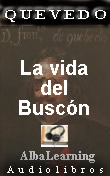|
|
|
|
| | HOME | AUDIOLIBROS | AMOR | ERÓTICA | HUMOR | INFANTIL | MISTERIO | POESÍA | NO FICCIÓN | BILINGUAL | VIDEOLIBROS | NOVEDADES | | |||||||||||||||
|
|
|
|
|||||||||||||
|
|||||||||||||||
 |
"Letter found on a drowned man" |
| Biografía de Guy de Maupassant en Wikipedia | |
| Letter found on a drowned man |
Madame, you ask me whether I am laughing at you? You cannot believe that a man has never been in love. Well, then, no, no, I have never loved, never! Why is this? I really cannot tell. I have never experienced that intoxication of the heart which we call love! Never have I lived in that dream, in that exaltation, in that state of madness into which the image of a woman casts us. I have never been pursued, haunted, roused to fever heat, lifted up to Paradise by the thought of meeting, or by the possession of, a being who had suddenly become for me more desirable than any good fortune, more beautiful than any other creature, of more consequence than the whole world! I have never wept, I have never suffered on account of any of you. I have not passed my nights sleepless, while thinking of her. I have no experience of waking thoughts bright with thought and memories of her. I have never known the wild rapture of hope before her arrival, or the divine sadness of regret when she went from me, leaving behind her a delicate odor of violet powder. I have never been in love. I have also often asked myself why this is. And truly I can scarcely tell. Nevertheless I have found some reasons for it; but they are of a metaphysical character, and perhaps you will not be able to appreciate them. I suppose I am too critical of women to submit to their fascination. I ask you to forgive me for this remark. I will explain what I mean. In every creature there is a moral being and a physical being. In order to love, it would be necessary for me to find a harmony between these two beings which I have never found. One always predominates; sometimes the moral, sometimes the physical. The intellect which we have a right to require in a woman, in order to love her, is not the same as the virile intellect. It is more, and it is less. A woman must be frank, delicate, sensitive, refined, impressionable. She has no need of either power or initiative in thought, but she must have kindness, elegance, tenderness, coquetry and that faculty of assimilation which, in a little while, raises her to an equality with him who shares her life. Her greatest quality must be tact, that subtle sense which is to the mind what touch is to the body. It reveals to her a thousand little things, contours, angles and forms on the plane of the intellectual. Very frequently pretty women have not intellect to correspond with their personal charms. Now, the slightest lack of harmony strikes me and pains me at the first glance. In friendship this is not of importance. Friendship is a compact in which one fairly shares defects and merits. We may judge of friends, whether man or woman, giving them credit for what is good, and overlooking what is bad in them, appreciating them at their just value, while giving ourselves up to an intimate, intense and charming sympathy. In order to love, one must be blind, surrender one's self absolutely, see nothing, question nothing, understand nothing. One must adore the weakness as well as the beauty of the beloved object, renounce all judgment, all reflection, all perspicacity. I am incapable of such blindness and rebel at unreasoning subjugation. This is not all. I have such a high and subtle idea of harmony that nothing can ever fulfill my ideal. But you will call me a madman. Listen to me. A woman, in my opinion, may have an exquisite soul and charming body without that body and that soul being in perfect harmony with one another. I mean that persons who have noses made in a certain shape should not be expected to think in a certain fashion. The fat have no right to make use of the same words and phrases as the thin. You, who have blue eyes, madame, cannot look at life and judge of things and events as if you had black eyes. The shade of your eyes should correspond, by a sort of fatality, with the shade of your thought. In perceiving these things, I have the scent of a bloodhound. Laugh if you like, but it is so. And yet, once I imagined that I was in love for an hour, for a day. I had foolishly yielded to the influence of surrounding circumstances. I allowed myself to be beguiled by a mirage of Dawn. Would you like me to tell you this short story? I met, one evening, a pretty, enthusiastic little woman who took a poetic fancy to spend a night with me in a boat on a river. I would have preferred a room and a bed; however, I consented to the river and the boat. It was in the month of June. My fair companion chose a moonlight night in order the better to stimulate her imagination. We had dined at a riverside inn and set out in the boat about ten o'clock. I thought it a rather foolish kind of adventure, but as my companion pleased me I did not worry about it. I sat down on the seat facing her; I seized the oars, and off we starred. I could not deny that the scene was picturesque. We glided past a wooded isle full of nightingales, and the current carried us rapidly over the river covered with silvery ripples. The tree toads uttered their shrill, monotonous cry; the frogs croaked in the grass by the river's bank, and the lapping of the water as it flowed on made around us a kind of confused murmur almost imperceptible, disquieting, and gave us a vague sensation of mysterious fear. The sweet charm of warm nights and of streams glittering in the moonlight penetrated us. It was delightful to be alive and to float along thus, and to dream and to feel at one's side a sympathetic and beautiful young woman. I was somewhat affected, somewhat agitated, somewhat intoxicated by the pale brightness of the night and the consciousness of my proximity to a lovely woman. "Come and sit beside me," she said. I obeyed. She went on: "Recite some poetry for me." This appeared to be rather too much. I declined; she persisted. She certainly wanted to play the game, to have a whole orchestra of sentiment, from the moon to the rhymes of poets. In the end I had to yield, and, as if in mockery, I repeated to her a charming little poem by Louis Bouilhet, of which the following are the last verses: "I hate the poet who with tearful eyeMurmurs some name while gazing tow'rds a star,Who sees no magic in the earth or sky,Unless Lizette or Ninon be not far."The bard who in all Nature nothing seesDivine, unless a petticoat he tiesAmorously to the branches of the treesOr nightcap to the grass, is scarcely wise."He has not heard the Eternal's thunder tone,The voice of Nature in her various moods,Who cannot tread the dim ravines alone,And of no woman dream mid whispering woods." I expected some reproaches. Nothing of the sort. She murmured: "How true it is!" I was astonished. Had she understood? Our boat had gradually approached the bank and become entangled in the branches of a willow which impeded its progress. I placed my arm round my companion's waist, and very gently approached my lips towards her neck. But she repulsed me with an abrupt, angry movement. "Have done, pray! How rude you are!" I tried to draw her toward me. She resisted, caught hold of the tree, and was near flinging us both into the water. I deemed it prudent to cease my importunities. She said: "I would rather capsize you. I feel so happy. I want to dream. This is so delightful." Then, in a slightly malicious tone, she added: "Have you already forgotten the verses you repeated to me just now?" She was right. I became silent. She went on: "Come, now!" And I plied the oars once more. I began to think the night long and my position ridiculous. My companion said to me: "Will you make me a promise?" "Yes. What is it?" "To remain quiet, well-behaved and discreet, if I permit you--" "What? Say what you mean!" "Here is what I mean: I want to lie down on my back at the bottom of the boat with you by my side. But I forbid you to touch me, to embrace me-- in short--to caress me." I promised. She said warningly: "If you move, 'I'll capsize the boat." And then we lay down side by side, our eyes turned toward the sky, while the boat glided slowly through the water. We were rocked by its gentle motion. The slight sounds of the night came to us more distinctly in the bottom of the boat, sometimes causing us to start. And I felt springing up within me a strange, poignant emotion, an infinite tenderness, something like an irresistible impulse to open my arms in order to embrace, to open my heart in order to love, to give myself, to give my thoughts, my body, my life, my entire being to some one. My companion murmured, like one in a dream: "Where are we; Where are we going? It seems to me that I am leaving the earth. How sweet it is! Ah, if you loved me--a little!!!" My heart began to throb. I had no answer to give. It seemed to me that I loved her. I had no longer any violent desire. I felt happy there by her side, and that was enough for me. And thus we remained for a long, long time without stirring. We had clasped each other's hands; some delightful force rendered us motionless, an unknown force stronger than ourselves, an alliance, chaste, intimate, absolute, of our beings lying there side by side, belonging to each other without contact. What was this? How do I know? Love, perhaps? Little by little the dawn appeared. It was three o'clock in the morning. Slowly a great brightness spread over the sky. The boat knocked up against something. I rose up. We had come close to a tiny islet. But I remained enchanted, in an ecstasy. Before us stretched the firmament, red, pink, violet, spotted with fiery clouds resembling golden vapor. The river was glowing with purple and three houses on one side of it seemed to be burning. I bent toward my companion. I was going to say, "Oh! look!" But I held my tongue, quite dazed, and I could no longer see anything except her. She, too, was rosy, with rosy flesh tints with a deeper tinge that was partly a reflection of the hue of the sky. Her tresses were rosy; her eyes were rosy; her teeth were rosy; her dress, her laces, her smile, all were rosy. And in truth I believed, so overpowering was the illusion, that the dawn was there in the flesh before me. She rose softly to her feet, holding out her lips to me; and I moved toward her, trembling, delirious feeling indeed that I was going to kiss Heaven, to kiss happiness, to kiss a dream that had become a woman, to kiss the ideal which had descended into human flesh. She said to me: "You have a caterpillar in your hair." And, suddenly, I felt as sad as if I had lost all hope in life. That is all, madame. It is puerile, silly, stupid. But I am sure that since that day it would be impossible for me to love. And yet--who can tell? The young man upon whom this letter was found was yesterday taken out of the Seine between Bougival and Marly. An obliging bargeman, who had searched the pockets in order to ascertain the name of the deceased, brought this paper to the author. 8 January 1884 |
||
|
|
|
AUTORES RECOMENDADOS |
 |
 |
 |
 |
 |
 |
 |
 |
|
¿Cómo descargar los audiolibros? Síganos en: |
|
||
|---|---|---|---|
|
©2021 AlbaLearning (All rights reserved) |
|---|